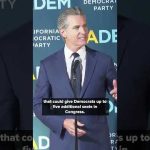The legal fights now converging on the federal courts are not petty squabbles over procedure — they are a frontal challenge to the idea that a president can act decisively to protect American workers, borders, and sensible governance. From tariffs to deportations to the way federal agencies are run, opponents are trying to hobble a White House that has made restoring national sovereignty its mission. These cases matter because they will determine whether the presidency regains the muscle it needs to defend the country or whether it is shackled by an activist judiciary and partisan suits.
Take the tariff fight: Mr. Trump used the International Emergency Economic Powers Act to slap steep levies on trading partners and force better deals for American industry, and the courts have treated that as a major constitutional question. Opponents argue tariffs are Congress’s sole province, while the administration insists the executive can act in an economic emergency to defend national security and jobs. The Supreme Court is now being asked to decide whether bold presidential action to hit back at unfair trade is an abuse of power or a legitimate use of emergency authority — a decision that will shape economic policy for a generation.
On immigration, the administration’s invocation of the 1798 Alien Enemies Act to speed deportations of violent gang members has produced fireworks between the White House and federal judges. Conservatives should be clear-eyed: the president has a duty to remove violent foreign criminals and secure communities, yet courts are forcing procedural hurdles that can tie deportations in knots. That clash isn’t abstruse lawyering — it’s the difference between a secure border and endless legal limbo that leaves citizens at risk.
The birthright citizenship fight has exposed what’s at stake when activist lawyers try to freeze policy by blanket nationwide injunctions rather than let the legal process run its course. Mr. Trump’s executive move to narrow the modern, open-ended interpretation of the 14th Amendment prompted emergency appeals and Supreme Court attention about whether district courts can block a policy across the whole country. Conservatives who want accountable government should welcome clarity: either courts respect the political branches or they will continue to rewrite national policy from the bench.
Inside the administrative state, the Department of Education and other agencies have been remade to reflect taxpayers’ priorities rather than academic fads dictated from on high, and that has provoked a swarm of lawsuits. Plaintiffs cry foul when congressionally dubious grants are cut or programs are realigned, but the real question is who gets to set priorities — unelected bureaucrats or the elected president and Congress. If judges keep second-guessing these policy shifts at every turn, reform will always be stuck in a swamp of litigation and delay.
Perhaps the sharpest constitutional fight is over independent agencies and whether presidents may remove officials who defy their policy agenda. The conservative argument is straightforward: accountability requires that the president be able to direct and, if necessary, remove executive officers who exercise real executive power. Recent court orders and emergency stays have already signaled a willingness by the high court to revisit century-old precedents that insulated agencies from democratic control. For those who believe in the Constitution’s separation of powers, restoring presidential oversight over the administrative state is long overdue.
These cases are not academic; they are a turning point for anyone who believes in American sovereignty, democratic accountability, and a government that serves taxpayers instead of elites. The Supreme Court’s decisions will either hand the reins back to the political branches or hand more control to unelected judges and permanent bureaucracies. Conservatives should be prepared to defend bold presidential action in court, in the courts of public opinion, and at the ballot box so that the nation can govern itself rather than being governed by a tangle of precedent and precedent-driven paralysis.




